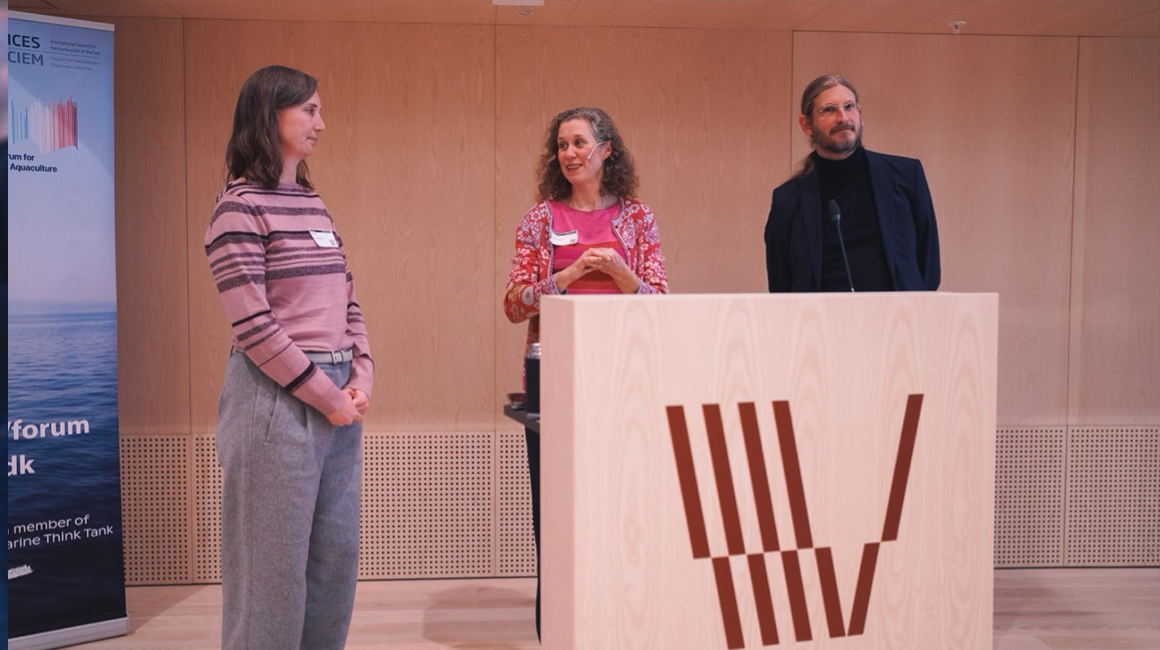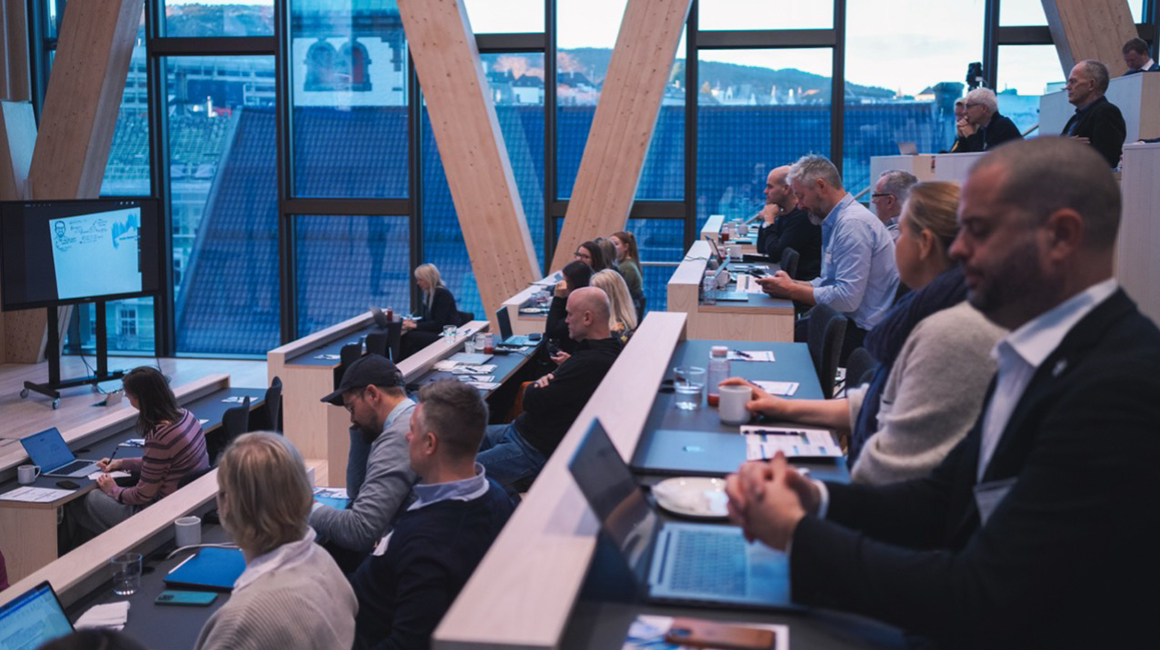4. Closing of workshop and policy recommendations
In closing the workshop, Dorothy Dankel highlighted the excitement surrounding the phase ahead, emphasizing the convergence of various stakeholders, data, and knowledge. She announced plans to compile the insights gathered during the workshop into a comprehensive report for submission to ICES, with dissemination at the ICES Workshop to develop guidelines on how to approach the ecological, economic, and social trade-offs between offshore renewable energy developments (wind farms) and fisheries (WKWIND) 29 April – 2 May 2024.


In closing the workshop, Dorothy Dankel highlighted the excitement surrounding the phase ahead, emphasizing the convergence of various stakeholders, data, and knowledge. She announced plans to compile the insights gathered during the workshop into a comprehensive report for submission to ICES, with dissemination at the ICES Workshop to develop guidelines on how to approach the ecological, economic, and social trade-offs between offshore renewable energy developments (wind farms) and fisheries (WKWIND) 29 April – 2 May 2024.
Following Dorothy, Lisa Pfeiffer acknowledged the challenges previously encountered and resolved in the marine domain. She stressed the importance of drawing upon collective knowledge and experiences to sustainably manage the development of offshore renewable energy, considering the interplay between new and established sectors.
Jörn Schmidt directed his remarks to Early Career Researchers (ECRs), outlining the multiple avenues available for engagement within ICES, including the strategic initiative tailored for ECRs. He encouraged ECRs to directly reach out to the chairs of relevant groups to explore involvement opportunities. Dorothy concluded by expressing gratitude to NMTT and the hosts, Vestland County Council, for their invaluable contributions to the workshop's success.
Following the results of the workshop, the Chairs and the Board of the Nordic Marine Think Tank offer three recommendations:
- Establishment of new Industry-Research Consortia for Offshore Wind social-ecological-technical Innovation: The policy recommendation would entail creating dedicated novel groups of diverse experts, supported by current and future funding calls from the EU and Research Council of Norway, to drive innovation in offshore wind park design and data acquisition. These consortia would bring together industry stakeholders, research institutions, and relevant government bodies to collaborate on developing and implementing cutting-edge technologies and methodologies. By fostering enhanced industry-research dialogues and providing financial support, these consortia can accelerate the development of sustainable offshore wind solutions.
- Continued Facilitation of Industry-Research Dialogues: A policy recommendation would involve the facilitation and incentivization of regular industry-research dialogues focused on offshore wind park design and data acquisition. Government agencies could organize forums, workshops, and conferences where stakeholders from the offshore wind industry and academic research community can exchange ideas, share best practices, and collaborate on addressing key challenges. By fostering a culture of collaboration and knowledge sharing, these dialogues can drive innovation, improve industry practices, and enhance the overall competitiveness of the offshore wind sector. ICES and the Nordic Marine Think Tank remain committed to this effort.One of the most crucial issues regarding offshore wind development is the potential impact on marine ecosystems and biodiversity. Offshore wind projects have the potential to disrupt marine habitats, affect migratory patterns of marine species, and alter the distribution of marine life. This can have significant ecological consequences, including the loss of biodiversity, changes in food webs, and disruption of important ecological processes.
- Credible Integration of Fishing Stakeholders in Marine Spatial Planning: This policy recommendation involves integrating fishing stakeholders into the process of marine spatial planning for offshore wind development. Government agencies and industry consortia should actively engage with fishing communities to understand their concerns, priorities, and needs regarding offshore wind projects. By incorporating input from fishing stakeholders into the planning and decision-making process, policymakers can promote pragmatic and strategic co-existence initiatives that minimize conflicts between offshore wind entities and fishing interests. This approach can help ensure the sustainable exploitation of marine resources while supporting the growth of the offshore wind industry.